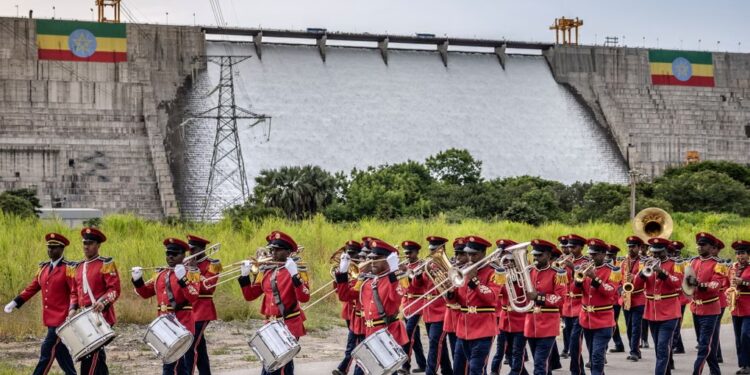Ethiopia has officially inaugurated Africa’s largest hydroelectric facility, the Grand Ethiopian Renaissance Dam (GERD), in a move hailed domestically as a milestone for development but viewed in Egypt as a growing threat to water security. The project is set to transform Ethiopia’s energy landscape while deepening a long-running diplomatic rift along the Nile.
A symbol of national ambition
Ethiopian Prime Minister Abiy Ahmed declared the dam’s completion a historic achievement, stating that it would provide electricity not only for Ethiopia but also for neighbouring countries. With an installed capacity of more than 6,000 megawatts, GERD is expected to power millions of homes, stimulate industrial growth and strengthen Ethiopia’s position as a regional energy hub.
The project, financed largely without foreign backing, has been framed as a symbol of sovereignty and resilience, with Ethiopians contributing through bond sales and domestic funding campaigns.
Egypt’s fears over water security
Egypt, which relies on the Nile for around 90% of its freshwater supply, has long opposed the project, fearing that dam operations could severely restrict downstream flows during periods of drought. Cairo has repeatedly warned that unilateral actions by Ethiopia could endanger food security, agriculture and overall stability in the region.
Negotiations between Ethiopia, Egypt and Sudan have failed to produce a binding agreement on water sharing and dam management, leaving tensions unresolved.
Regional implications
The inauguration comes at a time of heightened regional sensitivities. Sudan, positioned between Ethiopia and Egypt, has expressed mixed views, at times supporting the dam for its potential benefits while also raising concerns about its safety and management.
International mediators, including the African Union and the United States, have attempted to broker a deal, but progress has been limited. The risk of future disputes remains high if cooperative frameworks are not established.
Economic and environmental impact
For Ethiopia, the dam represents a lifeline in addressing chronic electricity shortages, with nearly half the population lacking reliable power. Exports of surplus electricity to countries such as Kenya, Djibouti and Sudan could generate vital revenue.
However, environmental groups warn of potential ecological consequences, including altered river ecosystems and reduced sediment flow downstream. The challenge of balancing development, regional stability and environmental stewardship will remain central to the dam’s legacy.
A new era or a new fault line?
Supporters in Ethiopia see GERD as the dawn of a new era of self-sufficiency and regional integration, while Egypt views it as a strategic threat. Without a comprehensive agreement on water management, the dam risks becoming a source of prolonged diplomatic friction in one of Africa’s most critical regions.
Newshub Editorial, 10 September 2025




Recent Comments